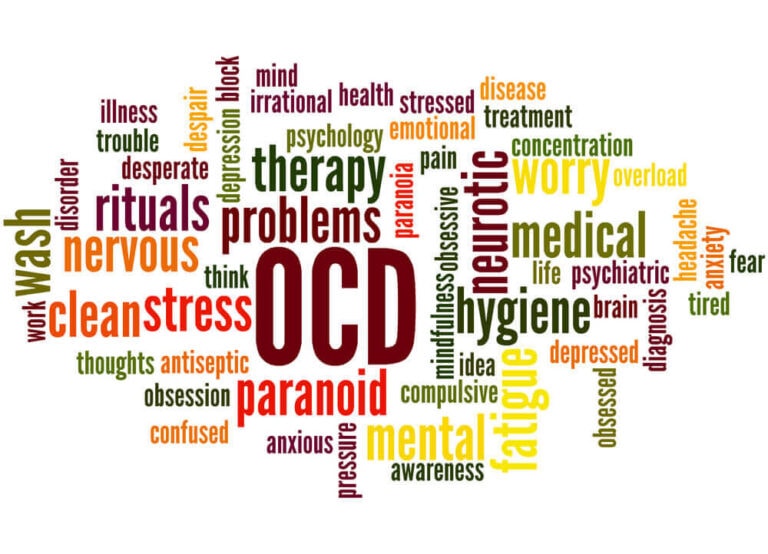It is easy to say that 2020 was one of the most difficult years for many individuals worldwide. The COVID-19 pandemic took 5.7 million lives worldwide, rattled economies, caused 114 million people to lose their jobs, and pushed many people to their breaking point, resulting in broken relationships, domestic abuse, severe mental health disorders, addiction, and suicide. 2021 was slightly better with businesses opening back up, the economy starting to come back to life, and vaccinations slowing down the death rate, but in 2022, we are still knee-deep in this pandemic. Families have been torn apart due to death, mental illness, addiction, and financial hardships. Although the disease progression is slowing down, the ripple effects from this ongoing pandemic could last longer than COVID-19 itself.
According to a health tracking poll from Kaiser Family Foundation, nearly four in 10 Americans say that worry and stress related to the threat of COVID-19 have played a negative role in their mental health, and now we are seeing a new trend known as “COVID long haulers.”
COVID long haulers, also known as long COVID or post-COVID condition, is a new-ish coined term to describe individuals experiencing long-term symptoms of COVID-19. Symptoms can include both physical and mental ailments. The World Health Organization released a specific definition describing long COVID:
“Post-COVID condition occurs in individuals with a history of probable or confirmed SARS-CoV-2 infection, usually three months from the onset of COVID-19 with symptoms that last for at least two months and cannot be explained by an alternative diagnosis. Common symptoms include fatigue, shortness of breath, cognitive dysfunction, and others that generally impact everyday functioning. Symptoms may be new-onset, following initial recovery from an acute COVID-19 episode, or persist from the initial illness. Symptoms may also fluctuate or relapse over time.”
Common signs and symptoms associated with long COVID
Fatigue
Mood changes
Loss or change in taste and smell
Cough
Chest pain
Difficulty breathing
Sleep problems
Anxiety
Depression
Memory problems (“brain fog”)
Who is affected by long COVID?
According to studies, approximately 10% of COVID individuals will experience long-COVID. However, one of the most confounding pieces of data is some people reporting longer-term COVID symptoms never had a positive COVID-19 test, but their symptoms may be the result of a COVID-19 infection that was never confirmed due to lack of available testing. This makes the numbers and the research even more difficult.
Is long COVID a mental health condition?
In short, the answer is no; long COVID is not a mental health condition; however, it can be looked at as a chronic medical condition that elicits many mental health symptoms. Individuals with chronic medical conditions such as diabetes, fibromyalgia, and chronic fatigue syndrome (CFS) are at a higher likelihood of developing mental health symptoms associated with depression, trauma-related disorders, and anxiety due to the many challenges and unknowns associated with chronic medical illnesses; and long COVID is no different. Rehabilitation psychologists are using research on treating patients with these chronic illnesses to help find a treatment plan for patients with long COVID. Rehabilitation psychologists are also applying research findings on post-intensive care syndrome (ICU), which includes symptoms such as impaired cognition and delirium caused by sedating medications and prolonged immobility. Individuals who have spent time in the ICU are at risk for trauma-related disorders.
There are a few schools of thought as to why so many people with long COVID are developing mental health symptoms:
Specific effects of COVID-19 on the brain, immune systems, and organs.
Traumatic aspects of having COVID-19, specifically if hospitalized in the ICU.
The unknowns, despair, and fatigue associated with COVID-19 with no end in sight.
A study in The Lancet Psychiatry reported that one-third of COVID-19 patients had been diagnosed with neurological or psychological symptoms, including anxiety, depression, post-traumatic stress disorder (PTSD), and psychosis, six months after they contracted COVID-19.
Coronaphobia
The association with anxiety with COVID-19 has coined a new term known as coronaphobia. This was first coined by psychologists Gordon Asmundson, Ph.D., and Steven Taylor, Ph.D., in the March 2020 Journal of Anxiety Disorders and is defined as the “intolerance of uncertainty, perceived vulnerability to disease, and anxiety (worry) proneness associated with COVID-19”. This specific phobia is classified as an anxiety disorder and may play a role in mental illness associated with COVID long haulers.
Looking towards the future
Unfortunately, there is no specific treatment or guidance for long COVID, and as a result, many healthcare providers are not sure what to offer their patients in terms of help. Specific symptoms can be managed with medication, but the syndrome, as a whole, is a puzzle. Many primary care physicians are turning to psychologists and psychiatrists for help, especially when treating mental health symptoms associated with long COVID. The hope is that more individuals seek mental health treatment for long COVID symptoms, but it may take some time before concrete research can show whether or not there has been an increase in mental health treatment, specifically for long-haulers. In the meantime, there are many long-hauler support and advocacy groups and a few post-COVID specialty clinics that are popping up across the United States. COVID-19 is not “just a virus.” It is a pandemic that has taken lives, affected people’s financial status and relationships, and resulted in medical complications and mental health disparities across the globe. When individuals struggle with long-term symptoms, it is important to take a step back and treat the whole person, not just the long hauler symptoms.
“If we only focus on recovery from the virus, and not recovery from a holistic, whole-person perspective, people’s recovery is going to be incomplete”.
-Megan Hosey, PhD, an assistant professor of rehabilitation psychology and neuropsychology in the Johns Hopkins Department of Physical Medicine and Rehabilitation.




